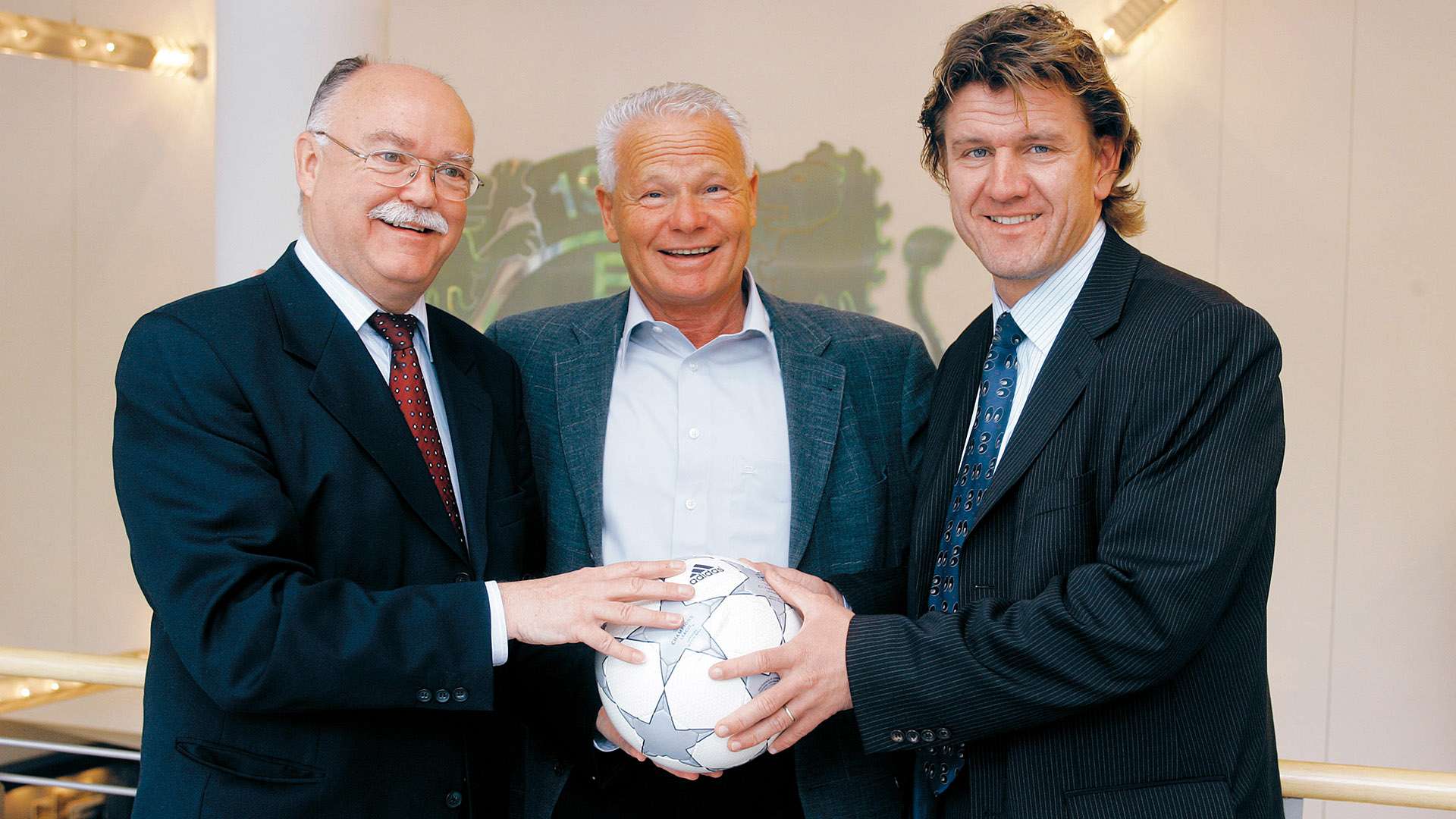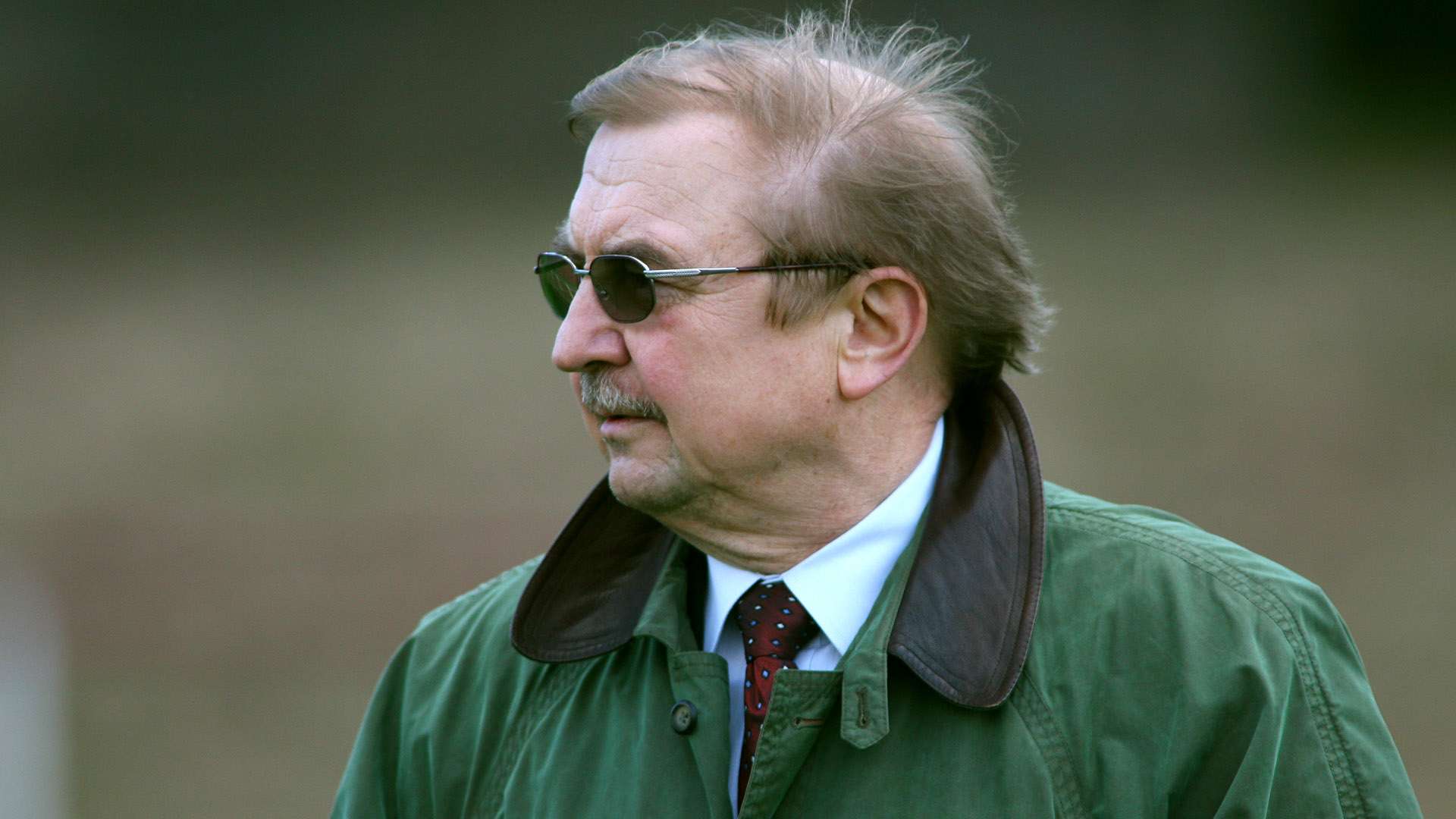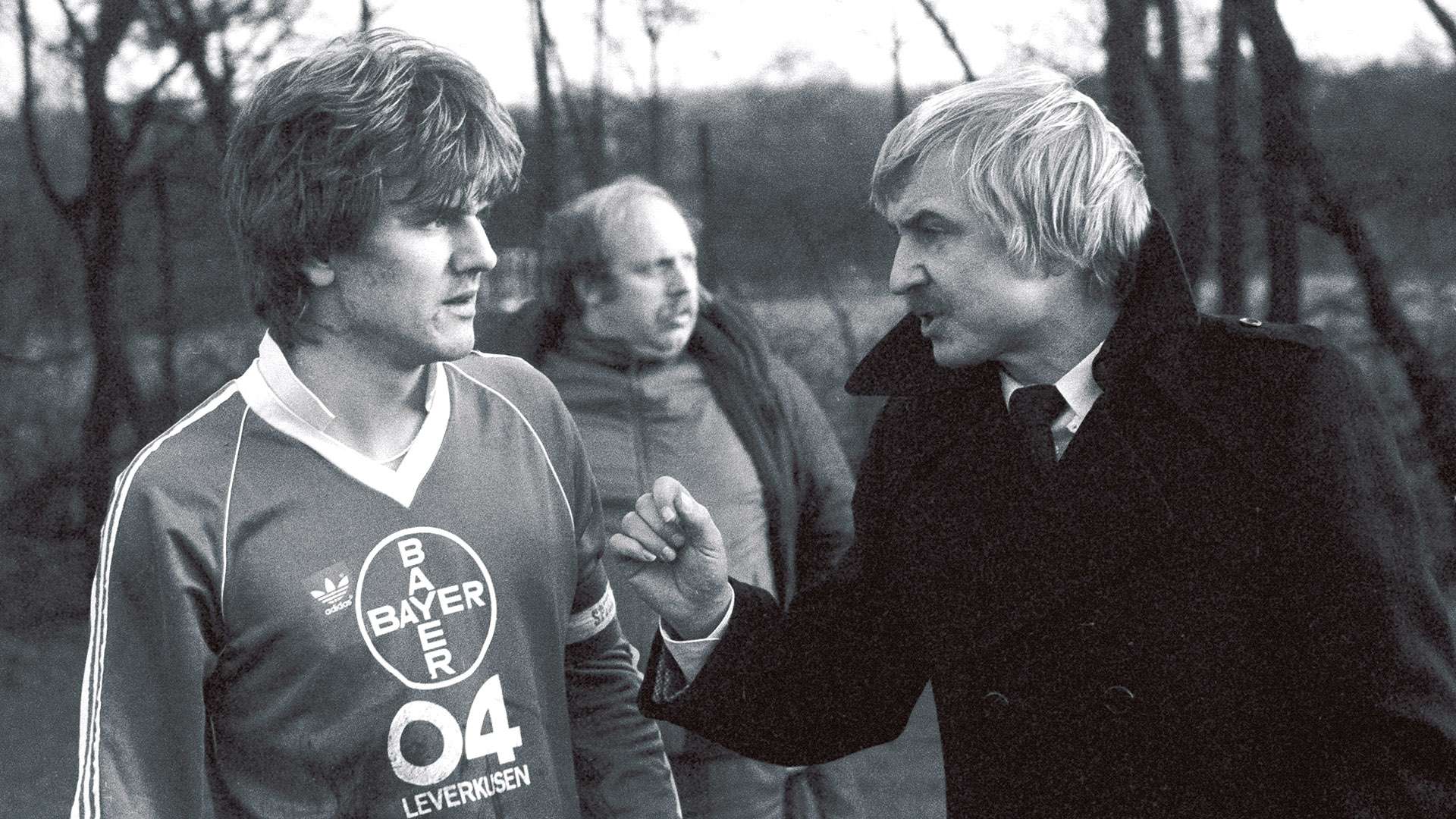Veterans history

The Bayer 04 Veterans team was reformed in 1992 by Heinz Heitmann on a voluntary basis at the request of the then football department head Kurt Vossen and numerous former Werkself professional players - especially from the 1979 promotion team.
Since then, the team have been crowned unofficial German champions for veterans’ teams several times, over 40s West German champions four times and Central Rhine champions eleven times, and have also taken part in numerous top-class tournaments, some of them at international level.
"The level of ambition among the Veterans is still incredible. But more important to us than sporting success is looking after our neighbours. There is hardly a club here in the Leverkusen region that we haven't played against," says Heitmann.
“Very well respected representative of Bayer 04”
Social commitment also plays an important role for the Bayer 04 Veterans. The Leverkusen old boys are happily invited to charity matches and tournaments across the country. "We are, I can say in all modesty, a very well respected representative of Bayer 04," said Heitmann. As a member of the Veterans team, no longer their manager, he remained so up to his death in April 2023.
The manager post had already been taken up by Dirk Dreher who has been active in a range of functions in his many years at Bayer 04.
Coaches

Gerd Kentschke
He was a player and assistant coach with the first team, and also coached the Bayer 04 reserves for over two decades: Gerd Kentschke, nicknamed "Ömmes", is a Leverkusen institution.
Gerd Kentschke is, so to speak, a founding child of the Bundesliga. When the domestic top flight was launched in 1963, he was part of it as a Karlsruher SC player. "Before that, I played for Blau-Weiß Langenbochum and scored two goals as an outside left in a state cup match in Hanover. KSC then signed me on the spot," recalls Kentschke. Six more years in the Bundesliga followed, first at FC Kaiserslautern and then at MSV Duisburg, before he joined Bayer 04 in 1973. The Bundesliga stats show Kentschke made 222 appearances and scored 39 goals.
When he started at Leverkusen at the age of 31, the club had just hit rock bottom and been relegated to the Verbandsliga, the fifth tier of German football. Kentschke, very nimble on his short legs, made a not inconsiderable contribution to the club's promotion to the second division in 1975. "Reiner Calmund asked me back then if I wanted to take over our U19s. I said yes straight away and from then on only made the occasional appearance in the second tier."
20 years as coach of the Leverkusen reserves
In 1977, he took over the Leverkusen reserves and ended up spending 20 years at the helm – hard to imagine nowadays bearing in mind the high turnover of coaches. "I'd always been a down-to-earth guy," Kentschke says in retrospect. "Today I sometimes wonder whether my life would have been very different if I had tried my luck elsewhere at the beginning of the 1980s.”
But he didn't, instead saving the Bayer 04 first team from relegation in the 1980/81 season. He stepped in as the successor to Willibert Kremer. "On 8 October 1980," Kentschke says without hesitation, as if it were only yesterday. Bayer 04 ended the season third from bottom but were fortunate that that was the first season that relegation play-off matches against a second-tier team were introduced.
Kickers Offenbach were the opponents back then. Leverkusen won both legs and remained in the top flight. "So I also made a small contribution to the club being where it is today. Who knows what would have happened otherwise," says Ömmes mischievously.
Like father, like son
Further highlights in black and red followed for Kentschke as well. The greatest experience was, of course, the UEFA Cup victory in 1988, when he was assistant to coach Erich Ribbeck. "Whenever I watch those games today on video, it all seems incredible. Back then, we played people like Erich Seckler, Pierre de Keyser or Markus Feinbier, who were basically unknown. Nevertheless, we went through against world-class clubs like Barcelona. You definitely only experience something like that once," Kentschke reminisces.
These days, of course, he’s no longer in such close contact with his former companions. As coach of the Veterans, however, he sees at least some of the Oldies on a regular basis. His son Michael has also become involved in the team and recently succeeded Heinz Heitmann as manager. There's a good reason to suspect the Kentschkes' enthusiasm for the beautiful game is genetically predisposed.

